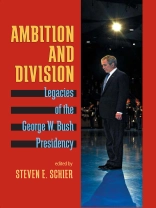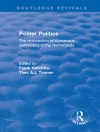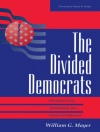The presidency of George W. Bush is notable for the grand scale of its ambitions, the controversy that these ambitions generated, and the risks he regularly courted in the spheres of politics, economics, and foreign policy. Bush's ultimate goal was indeed ambitious: the completion of the conservative "regime change" first heralded by the election of Ronald Reagan in 1980. But ironically this effort sewed the very discord that ultimately took root and emerged to frustrate Bush's plans, and may even have begun to unravel aspects of the Reagan revolution he sought to institutionalize.
Politically, the Bush White House sought the entrenchment of consistent Republican electoral majorities. Institutionally, the Bush administration sought to preserve control of Congress by maintaining reliable partisan Republican majorities, and to influence the federal courts with a steady stream of conservative judicial appointees. The administration also sought increased autonomy over the executive branch by the aggressive use of executive orders and bureaucratic reorganizations in response to 9/11.
Many of these efforts were at least partially successful. But ultimately the fate of the Bush presidency was tied to its greatest single gamble, the Iraq War. The flawed prosecution of that conflict, combined with other White House management failures and finally a slumping economy, left Bush and the Republican Party deeply unpopular and the victim of strong electoral reversals in 2006 and the election victory of Barack Obama in 2008. The American public had turned against the Bush agenda in great part because of the negative outcomes resulting from the administration's pursuit of that agenda.
This book assembles prominent presidential scholars to measure the trajectory of Bush's aspirations, his accomplishments, and his failures. By examining presidential leadership, popular politics and policymaking in this context, the contributors begin the work of understanding the unique historical legacy of the Bush presidency.
Over de auteur
<b>Steven E. Schier</b>, the Dorothy H. and Edward C. Congdon Professor of Political Science at Carleton College, is the author or editor of numerous books including <i>The Postmodern Presidency: Bill Clinton’s Legacy in U.S. Politics</i>, and <i>By Invitation Only: The Rise of Exclusive Politics in the United States</i>.












